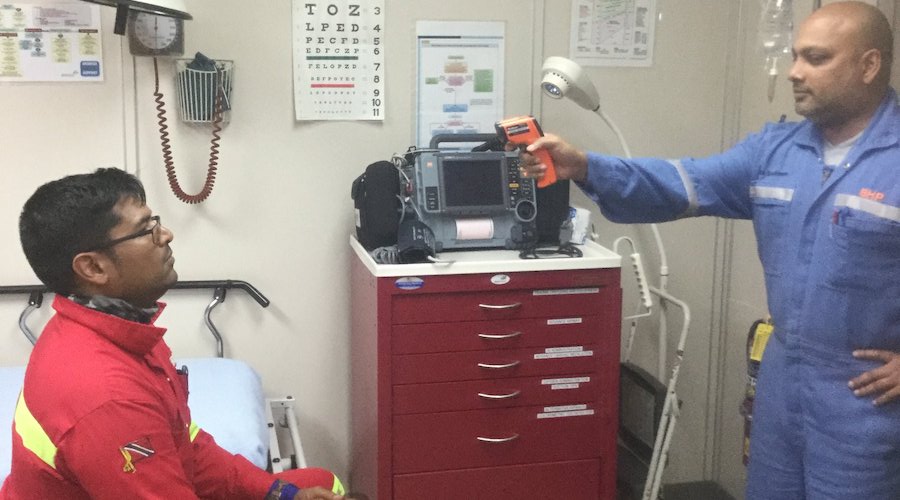
BHP commits $8m to support Chile’s battle against COVID-19


BHP operates the Escondida copper mine, which is the world’s largest, and the Pampa Norte mine, which consists of two operations, Spence and Cerro Colorado. Both complexes are in the northern Atacama Desert but Escondida and Spence are located in the Antofagasta region while Cerro Colorado is in the Tarapacá region.
Just a week ago, the company announced that it decided to exclude contractors from its Chilean operations for 15 days, in an effort to curb the spread of coronavirus.
Efforts will be focused on the southeast area of Santiago’s Metropolitan Region, Antofagasta and Tarapacá
But as the number of confirmed cases continues to grow, now reaching 2139 including seven deaths, BHP decided to join efforts with the Medical Faculty at the Catholic University with the goal of raising the testing capacity of family healthcare centres located in the southeast area of Santiago’s Metropolitan Region, as well as in Antofagasta and Tarapacá.
In a media statement, the miner said the plan involves an early detection program that includes 150.000 rapid tests able to provide results in 24 hours, 10 units for sampling and mobile tents and permanent units; the expansion of laboratory capacity, including the purchasing of new analysis equipment to maximize the speed for processing tests; community surveillance for cases that test positive and their contacts, something that will be done through primary attention centres and telemedicine; and a 24/7 call centre for identifying potential cases.
“In addition, BHP will implement a program to support communities and high-risk, vulnerable groups in the regions where the company operates, Antofagasta and Tarapacá,” the communiqué reads. “This will allow the delivery of supplies, sanitization of public areas, areas for the isolation of potential cases and support to the state network to increase medical rounds, supplies and treatment for high-risk people.”


Trump weighs using $2 billion in CHIPS Act funding for critical minerals

Codelco cuts 2025 copper forecast after El Teniente mine collapse

Electra converts debt, launches $30M raise to jumpstart stalled cobalt refinery

Abcourt readies Sleeping Giant mill to pour first gold since 2014

Barrick’s Reko Diq in line for $410M ADB backing

Nevada army depot to serve as base for first US strategic minerals stockpile

Tailings could meet much of US critical mineral demand – study

Viridis unveils 200Mt initial reserve for Brazil rare earth project

SQM boosts lithium supply plans as prices flick higher

Energy Fuels soars on Vulcan Elements partnership

Northern Dynasty sticks to proposal in battle to lift Pebble mine veto

Giustra-backed mining firm teams up with informal miners in Colombia

Critical Metals signs agreement to supply rare earth to US government-funded facility

China extends rare earth controls to imported material

Galan Lithium proceeds with $13M financing for Argentina project

Silver price touches $39 as market weighs rate cut outlook

First Quantum drops plan to sell stakes in Zambia copper mines

Ivanhoe advances Kamoa dewatering plan, plans forecasts

Texas factory gives Chinese copper firm an edge in tariff war

Energy Fuels soars on Vulcan Elements partnership

Northern Dynasty sticks to proposal in battle to lift Pebble mine veto

Giustra-backed mining firm teams up with informal miners in Colombia

Critical Metals signs agreement to supply rare earth to US government-funded facility

China extends rare earth controls to imported material

Galan Lithium proceeds with $13M financing for Argentina project

Silver price touches $39 as market weighs rate cut outlook

First Quantum drops plan to sell stakes in Zambia copper mines

Ivanhoe advances Kamoa dewatering plan, plans forecasts

















